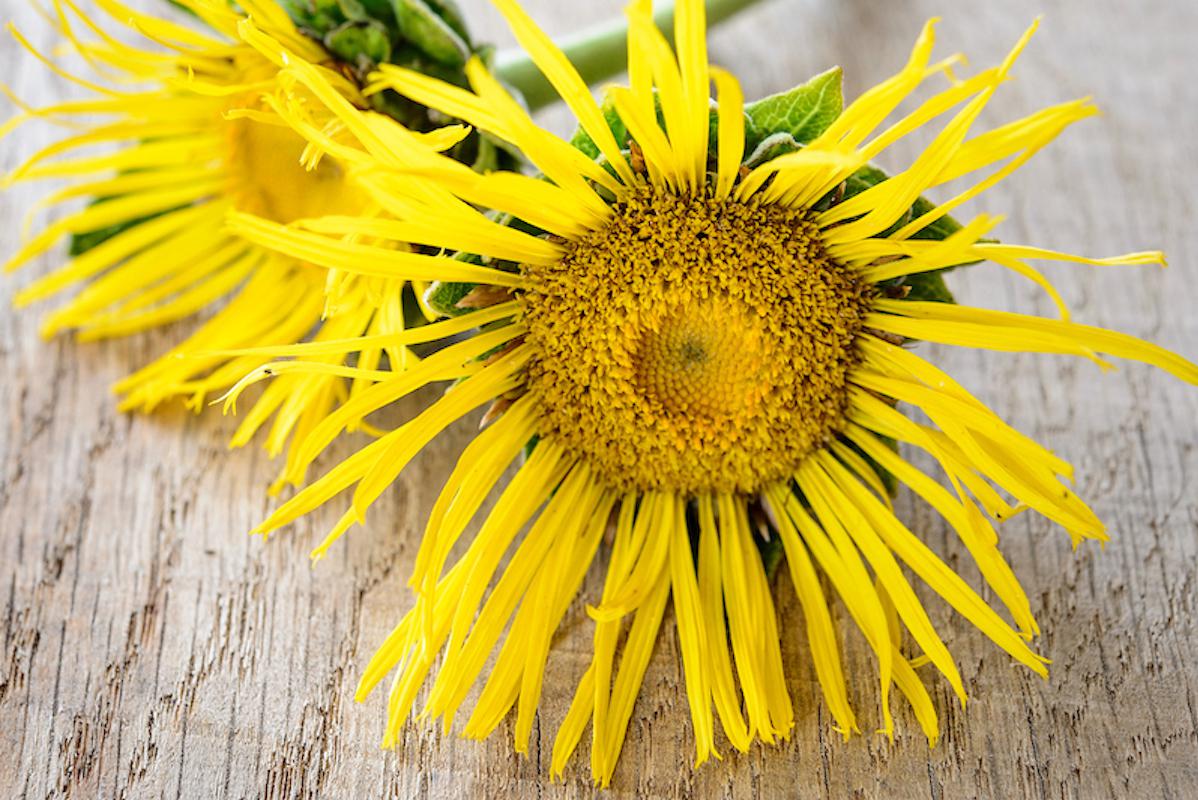25 January 2016
Tips from the herbalist
Tips From Our Herbalist: January 2016
As this winter's unpredictable (and frankly, rather annoying!) weather fluctuations continue, coughs, colds and chest infections seem prevalent. Herbal options can help soothe irritation and ease congestion, so here are a few tips and recipes from our Herbalist, Jane Wallwork-Gush to help see you through the season.
Elecampane is also known as Elfwort. It is an effective herb for treating respiratory conditions. It is a tonic expectorant used to clear the lungs of mucous with a warming and soothing action on the bronchial tube linings. Elecampane also has an anti-inflammatory effect in addition to having the ability to counteract infection. Its antispasmodic action alleviates irritable and persistent coughs and can also be a supportive treatment for asthma.
Thyme is another excellent respiratory tonic. It has an antiviral, antibacterial and antifungal action. A very effective remedy for throat infections, thyme can render an irritating, dry cough productive and also has a calming effect through its antispasmodic action.
Coltsfoot is an effective expectorant herb and can provide relief from dry and unproductive coughs. It has antitussive, anti-inflammatory and antispasmodic actions and both leaves and flowers can be used to treat respiratory conditions. It has beneficial indications for supporting asthma and is a popular ingredient in herbal smoking mixtures.
Mullein is a soothing relaxant herb for irritable chest conditions with an antitussive and mild antispasmodic action. It soothes the lungs and restores physical vitality and was used historically to treat TB.
Hyssop is an excellent cough remedy due to its expectorant, antispasmodic and antibacterial properties. It has been used to treat bronchitis and other chest infections and it is particularly effective if there is catarrh and a sore throat presenting. In cases of congestion a chest ointment can help provide some ease with breathing.
COUGH REMEDY
Thyme Tincture 50ml
Elecampane root Tincture 50ml
Blend in a 100ml bottle and take up to 5ml daily added to a tea infusion of Coltsfoot, Hyssop and Mullein.
CHEST RUB
12.5g beeswax
50ml infused oil of Hyssop
1. Weigh beeswax and place in a glass jar
2. Measure chosen infused oil and add to the beeswax
3. Stir thoroughly until all the beeswax is covered in the oil
4. Place the jar in a double boiler saucepan or slow cooker and keep stirring until the beeswax has melted and incorporated into the infused oil using a gentle heat
5. Some essential oil of Eucalyptus may added
6. Remove from the heat and carefully decant into a labelled jar. Once cool and the salve has hardened put the lid on the pot
7. Always make sure the salve is labelled and kept in a cool dark place


